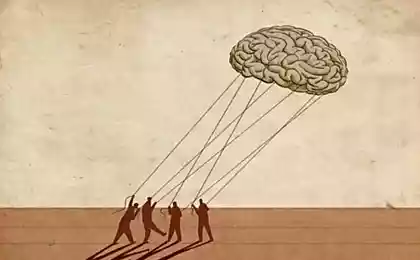433
The Effect Of Dunning — Kruger

The effect of Dunning — Kruger — cognitive distortion, which is that "people with low skills, make erroneous conclusions and take bad decisions, but not able to realize their mistakes because of their low level of qualification". This leads to have inflated perceptions of their own abilities while really highly skilled people, on the contrary, tend to underestimate their abilities and suffer a lack of confidence in their abilities, in addition to other more competent.
Thus, less competent people in General have a higher opinion of their own abilities, than it are peculiar to people competent which besides was inclined to assume that associates estimated them abilities as low as they are.
The hypothesis of the existence of this phenomenon was put forward in 1999 by Justin Kruger and David Dunning, which in this case is referred to the statements of Charles Darwin ("Ignorance more frequently breeds confidence than knowledge") and Bertrand Russell ("One of the unpleasant features of our time is that those who feel certainty are stupid, and those who have at least some imagination and understanding, filled with doubt and indecision").
To test the hypotheses Kruger and Dunning conducted a series of experiments with participation of students — trainees in psychology at Cornell University. They proceeded from the results of the research of his predecessors, who demonstrated that incompetence largely stems from ignorance of the basics of any activity, be it reading comprehension, driving a car, playing chess, playing tennis, etc.
They hypothesized that for people with low skills in any kind of activity characterized by the following:
1. They tend to overestimate their own skills;
2. They are not able to adequately assess the high level skills of others;
3. They are not able to comprehend the depth of their incompetence;
4. In the case that the level of these skills can significantly increase, they have the ability to realize the level of their previous incompetence.
The results of the experiments confirmed this hypothesis, were published in English. Journal of Personality and Social Psychology in December 1999.
P. S. And remember, just changing your mind — together we change the world! ©
Source: /users/1080
Engineers have developed a new method of printing with aluminum nanostructures
Scientists are children smarter than adults























